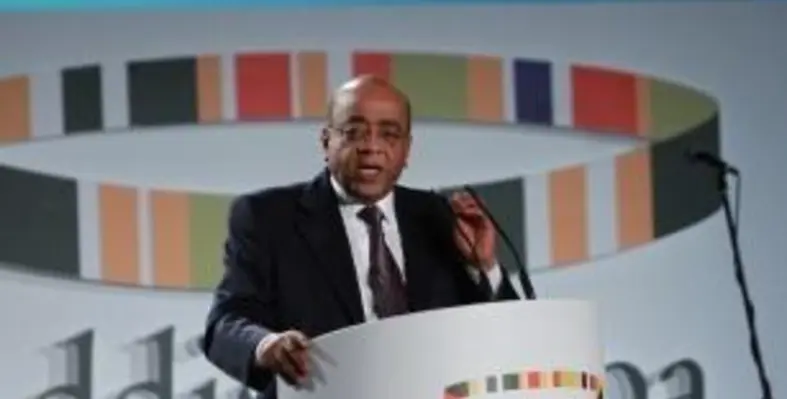Self-made billionaire Dr. Mo Ibrahim talks about the public image of Africa, corruption and how good governance is vital to reforming the continent in the long-term
The paradox of Africa is nobody knows the good guys; we only know the bad guys," announced Dr Mo Ibrahim to peals of laughter at the Oxford Business Forum Africa. "You don't know your history, your people," he continued, "You only know what CNN and BBC tell you about Mugabe." Only someone with Mo Ibrahim's credentials could get away with berating most of the academics and business people in the audience, but everyone was enthralled with the man, who was once named Britain's most influential black person and is credited with transforming the continent.
It was an iconic moment for the forum, organised annually by Oxford Business Saïd School, to have Mo Ibrahim sharing his experience and knowledge about Africa. The Sudanese billionaire made his name after setting up Celtel, his mobile operator business, in 1998, that went on to become one of Africa's most successful companies. There were only two million mobile phones in Africa; by the time he sold it to Kuwaiti mobile operator, MTC, in 2005 there were 100 million. For the past 10 years, Mo Ibrahim has been promoting good governance in Africa through the Mo Ibrahim Foundation, which awards former African presidents a sizeable cash prize for 'demonstrating excellence in African leadership'.
Last year, however, no one made the cut for the prestigious award, to which no mention was given at the forum last month. Instead he enlightened the audience about his perspective on Africa. He said, "I really don't like these prescriptions of Africa floating around; Africa is a basket case, Africa is rising, or that Africa is the best thing since sliced bread. Africa is made up of 54 countries – [some of those guys are a basket case] – but there are different business and political environments for each country, which we should respect, instead of trying to brush a whole continent with the same tag; it is unfortunate."
He continued, "When people ask me what do I see about Africa? I think we have been exposed to too many Oxfam TV advertisements – [all these NGOs mean well and are wonderful people] – but with it carries unintended consequences. It clouds people's views that Africans are sick people that need help. African people are, however, more fitter than anybody, nobody runs faster than Africans and nobody plays football better than Africans. Let us be realistic about our view of Africa. It has ugly sides and beautiful sides it’s like any other place in the world."
He made reference Africa’s past. “It has a sad history, we have experienced slavery and colonialism, but all this stuff finished 50 years ago. We need to be realistic about what have we done in those 50 years. We need to stand up and accept what is wrong with us to move forward.”
Read the full story in this month's African Review here:












